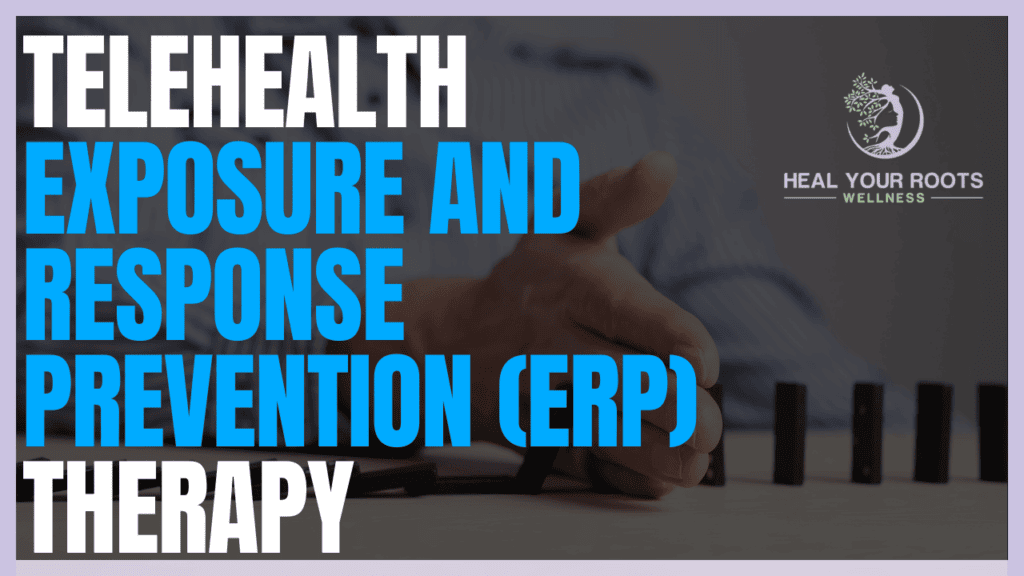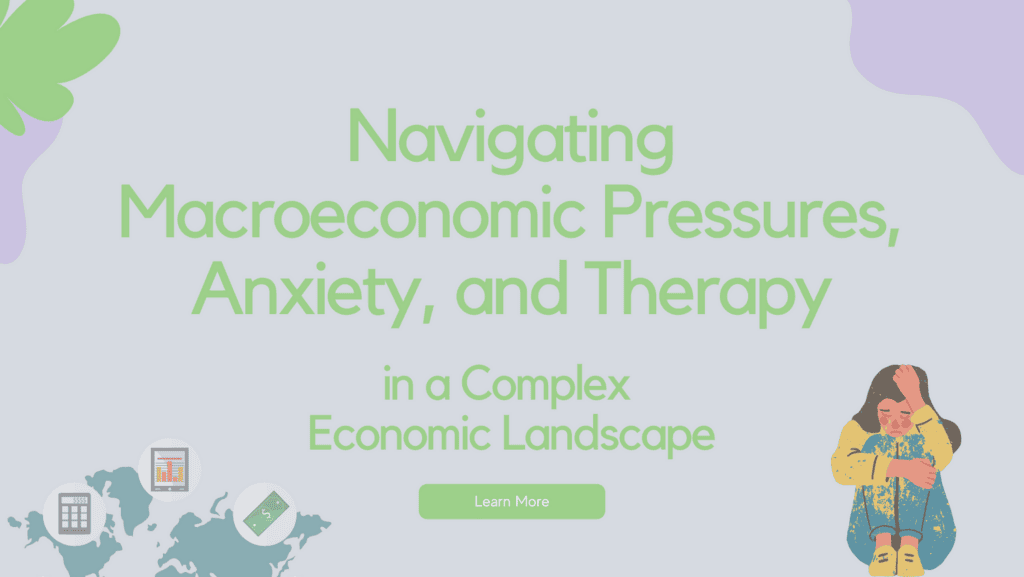What is Exposure and Response Prevention Therapy?
ERP Therapy, a form of Cognitive Behavioral Therapy (CBT), is a powerful approach with two key components: exposure and response prevention.
In the exposure phase, we courageously face our anxieties and distress by gradually confronting the thoughts, images, objects, and situations that trigger them. This step allows us to challenge and overcome our fears.
The response prevention aspect is equally significant. Once anxiety or obsessions are triggered, we consciously choose not to engage in compulsive behaviors. By doing so, we reclaim control over our thoughts and actions.
ERP Therapy empowers us to confront our fears head-on and break free from the grip of anxiety.
The Process of ERP
- Identification of Triggers: The first step involves identifying specific fears, obsessions, or anxiety triggers.
- Hierarchical Structuring: These triggers are then organized into a hierarchy based on the anxiety level they provoke.
- Guided Exposure: Starting with less anxiety-provoking triggers, individuals are gradually exposed to their fears under controlled conditions.
- Response Prevention: Simultaneously, the therapist guides the individual in refraining from engaging in obsessive actions or mental rituals.

Benefits of ERP Therapy
- Targeted Approach: ERP directly addresses the root of anxiety and obsessive-compulsive behaviors.
- Reduction in Anxiety: Repeated exposure reduces the power of anxiety triggers over time.
- Increased Tolerance: It helps build tolerance to discomfort and uncertainty.
- Empowerment: ERP promotes a sense of control over one’s thoughts and behaviors.
How ERP Therapy Works
When you’re caught in the relentless tides of Obsessive-Compulsive Disorder (OCD), finding a beacon of hope can feel like searching for a lighthouse in a stormy sea. That’s where Exposure and Response Prevention (ERP) Therapy shines its guiding light, offering a proven path to reclaim your life from OCD’s clutches. Let’s dive deep into the heart of ERP Therapy, exploring how this transformative approach works to empower you on your journey to wellness.
The Heartbeat of ERP: Confrontation Meets Compassion
At its core, ERP Therapy is about facing your fears without giving in to the compulsions that OCD whispers are your only safe harbor. It’s a therapeutic voyage that requires courage, guided by the compassionate expertise of therapists like Dr. Katie Manganello, whose insights from the Heal Your Roots Podcast illuminate the process with clarity and hope.
Step One: Mapping the Terrain of Triggers
The first step in ERP is like charting the unknown territories of your mind, identifying the specific thoughts, situations, and objects that trigger your OCD symptoms. It’s a process of discovery, shedding light on the fears that have been lurking in the shadows, influencing your behavior from behind the scenes.
Step Two: Setting Sail into Exposure Exercises
With your triggers mapped, you embark on the heart of the ERP journey—exposure. This step involves gradually and systematically facing the things that spark your anxiety or fear, without resorting to the rituals that OCD has convinced you are necessary. It’s about learning to navigate through your fears, proving to yourself that you can endure anxiety without your obsessive compulsive actions as a life raft.
Step Three: Holding Steady with Response Prevention
As you face your triggers, the urge to perform your compulsive rituals will call to you like sirens to a sailor. Response prevention is the act of resisting these calls, teaching you that the anxiety and fear do not have the power you once believed they held. Over time, this practice reduces the intensity and frequency of your obsessions, leading to significant improvements in your quality of life.
The Role of Willingness and Acceptance
A significant point highlighted by Dr. Manganello is the importance of willingness and acceptance in the success of ERP therapy. She notes that individuals who are open to facing their fears and willing to experience discomfort in the short term tend to achieve better outcomes. This willingness to accept and work through anxiety is crucial for breaking the cycle of OCD. ERP Therapy provides a safe and supportive environment to practice this acceptance and gradually overcome fears.
Applications of ERP
While primarily used for Obsessive Compulsive Disorder (OCD), ERP has shown effectiveness in treating various anxiety disorders:
- Phobias: By facing fears directly, individuals can overcome irrational phobias.
- Panic Disorder: Helps in managing the physical and psychological reactions to panic triggers.
- Generalized Anxiety Disorder: Assists in reducing excessive worry and need for control.
Exposure and Response Prevention (ERP) Therapy has emerged as a cornerstone in the treatment of anxiety disorders, most notably Obsessive-Compulsive Disorder (OCD). This evidence-based approach focuses on helping individuals confront their fears and reduce the compulsive acts they perform in response. In a special episode of the Heal Your Roots Podcast, Dr. Katie Manganello shares her expertise on ERP, providing valuable insights into how this therapy works and its benefits for individuals struggling with OCD.
Using ERP to Treat OCD: the Gold Standard in OCD Treatment
Navigating through the complexities of OCD treatment, individuals and clinicians alike find themselves at a crossroads, pondering the efficacy of various therapies. Among these, Exposure and Response Prevention (ERP) Therapy stands out, not just as a treatment option, but as the gold standard for OCD care.
ERP Therapy isn’t just another method in the extensive arsenal against OCD; it’s the pinnacle of evidence-based care for this intricate disorder. Unlike more general forms of Cognitive Behavioral Therapy(CBT), which may inadvertently reinforce OCD’s cycle through cognitive restructuring, ERP directly targets the disorder’s behavioral patterns.
Structured and Systematic Approach with Exposure Hierarchy
ERP’s methodology is both structured and systematic, involving a careful assessment of the individual’s specific OCD manifestations. By creating a hierarchy of fears and systematically exposing the individual to these triggers while preventing the compulsive response, ERP teaches that anxiety can decrease over time without the need for rituals. This process not only reduces the power of OCD’s grip but also fosters a sense of control and resilience in the face of anxiety.
Common Misconceptions About ERP Therapy
In the journey toward healing and recovery from Obsessive-Compulsive Disorder (OCD), Exposure and Response Prevention (ERP) Therapy emerges as a guiding light for many. Yet, amidst its effectiveness, misconceptions swirl around ERP, clouding its true essence and potential for transformation.
Misconception 1: ERP Is Overly Simplistic
One common misunderstanding is that ERP is a basic, one-size-fits-all approach, lacking the depth and complexity to address the nuances of OCD. Dr. Manganello emphasizes that while ERP has a behavioral focus, it’s intricately designed to navigate the unique patterns of obsession and compulsion each individual experiences. Far from being simplistic, ERP is a specialized form of CBT tailored to break the cycle of OCD with precision and care.
Misconception 2: ERP Is Merely About Facing Fears and Experiencing Distress
While exposure to feared stimuli is a cornerstone of ERP, it’s a misconception to view the therapy as merely facing fears without strategy or support. ERP involves a detailed assessment to understand the subtypes of OCD, the function of behaviors, and the core fears driving them. This meticulous planning ensures that exposures are not only about confronting fears but about reshaping the relationship with those fears in a controlled, therapeutic context.
Misconception 3: ERP Leads to Increased Anxiety or Obsession
A common fear is that ERP will exacerbate anxiety by directly engaging with distressing thoughts and situations. However, Dr. Manganello clarifies that the purpose of ERP is not to torture or overwhelm but to teach the brain that it can endure these experiences without resorting to compulsions. Over time, this leads to a significant reduction in anxiety and compulsive behaviors, proving that facing fears in a structured manner diminishes their power.
Misconception 4: ERP Works Immediately
Expecting immediate results from ERP can lead to disappointment. Therapy is a journey, one that requires patience, persistence, and willingness to gradually confront and accept discomfort. Success in ERP builds over time, with each step forward marking progress in reclaiming freedom from OCD’s grip.
Finding Therapists Trained in ERP Therapy
If you are considering ERP Therapy for yourself or a loved one, it is crucial to find a therapist who is trained in this approach. At Heal Your Roots Wellness, our therapists have extensive experience and training in ERP and other evidence-based therapies to provide specialized care for individuals struggling with anxiety disorders. Contact us today to learn more about our telehealth therapy sessions and take the first step towards overcoming your fears and living a more fulfilling life.
Trained Therapists
One of the crucial factors for successful ERP therapy is working with a therapist who is trained in this approach. At Heal Your Roots Wellness, we have therapists trained in Exposure and Response Prevention Therapy, ensuring that clients receive specialized care tailored to their needs.
Summary of Telehealth Exposure Therapy
ERP Therapy stands out as an effective treatment for OCD, offering hope and a pathway to recovery for many individuals. Dr. Katie Manganello’s insights from the Heal Your Roots Podcast underscore the importance of confronting fears in a structured and supportive environment. As more individuals become aware of and engage in ERP therapy, the potential for healing and overcoming OCD becomes increasingly attainable.
For further details on Dr. Manganello’s discussion on ERP, tune into her episode on the Heal Your Roots Podcast, where she delves deeper into the nuances of this therapeutic approach and shares her professional experiences and success stories.






